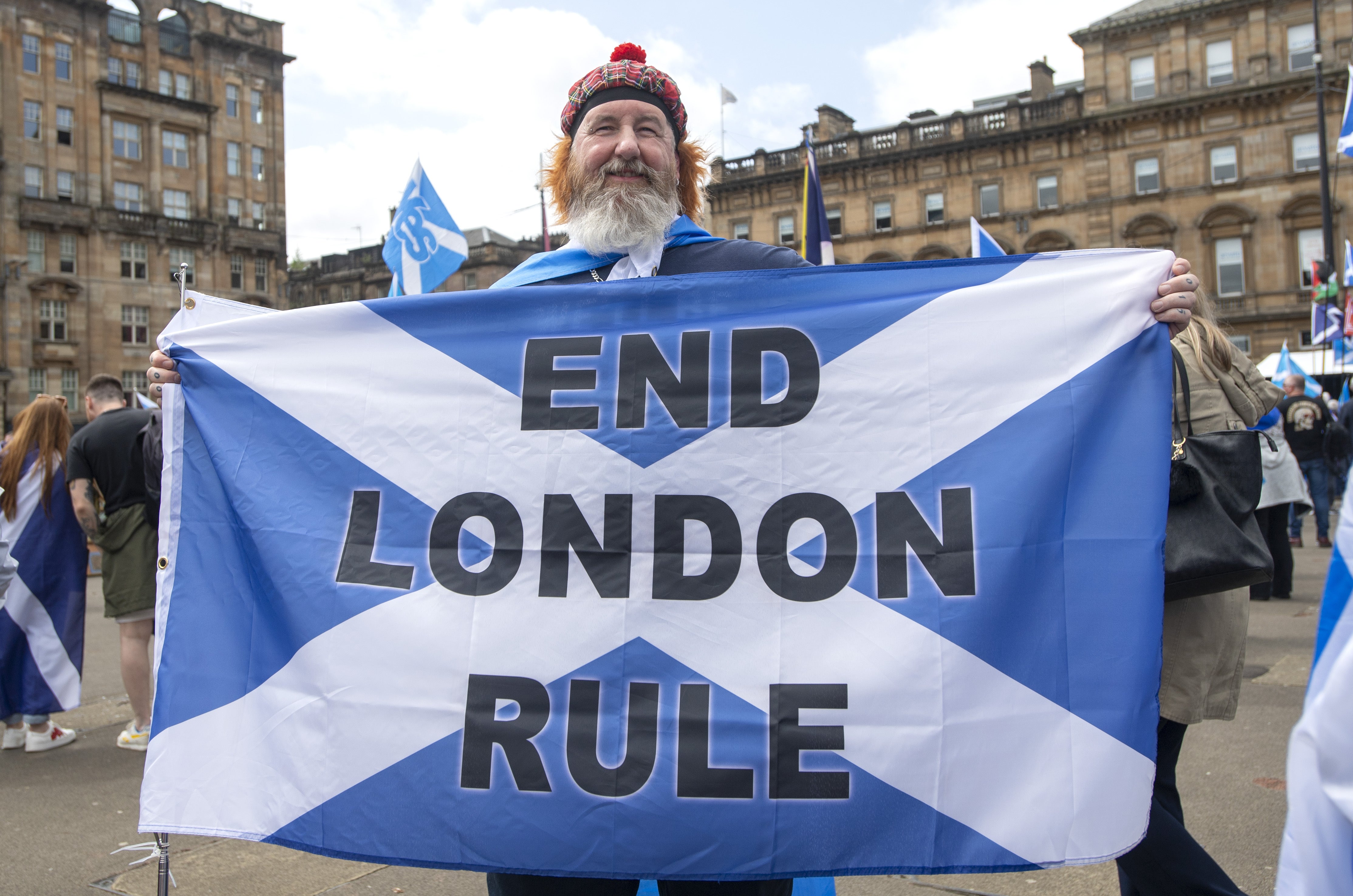Critics complain legal advice on Indyref2 leaves ‘big questions unanswered’
The Scottish Government has published some of the legal advice it has received on the issue.

The Scottish Government has published some legal advice it has received on its plans for a second independence vote – but ministers have been accused of leaving the “big questions unanswered”.
A two-page document – published as First Minister Nicola Sturgeon reaffirmed her commitment to hold a second referendum by the end of 2023 – was released after Scottish Information Commissioner Daren Fitzhenry ruled in April that some of the legal advice should be made public.
The paper showed ministers have been advised there is a “legal basis” for them to ask elections watchdogs at the Electoral Commission to test the question for a second independence referendum.
It also stated it was the opinion of the law officers – the Lord Advocate in Scotland and the Solicitor General – that ministers “can lawfully undertake policy development work preparing proposals for independence”.
Scottish Labour constitution spokeswoman Sarah Boyack said the publication of the document was “a rare win for transparency against this secretive SNP government”.
But she added that the information published “leaves the big questions unanswered” – as she challenged the government to “come clean once and for all” on whether Holyrood ministers can legally hold a second vote on the future of the UK.
Ms Boyack said: “Whether they are withholding crucial information or simply haven’t bothered to ask about competency, this fiasco speaks to something badly wrong at the heart of the SNP.
“Another referendum is the SNP’s answer to every question under the sun, so the public shouldn’t be kept in the dark on the legality of it.
“The SNP have dragged this circus out for long enough – they need to come clean once and for all.”
The Scottish Government are at it. What the public want to know is whether the Scottish Government has legal advice on holding a referendum without a Section 30 Order.
Scottish Conservative constitution spokesman Donald Cameron similarly said it was “welcome that the SNP have finally been dragged into releasing this information that they tried to hide from the public”.
But he added: “It still leaves unanswered questions about how they plan to continue their push for a second divisive referendum.
“The murky secretive approach must end. The public deserve answers about what the SNP are planning.”
And Scottish Liberal Democrat leader Alex Cole-Hamilton said the advice was “silent on all of the central legal questions” – principally whether the Scottish Government could hold another vote without Westminster’s consent.
UK Prime Minister Boris Johnson has repeatedly made clear his government will not grant a Section 30 order – as happened in advance of the 2014 referendum – leaving questions over how a legally-binding ballot could be held.
Mr Cole-Hamilton said: “The Scottish Government are at it. What the public want to know is whether the Scottish Government has legal advice on holding a referendum without a Section 30 Order and by refusing to publish that they are mocking freedom of information legislation.”
In going public with some of the advice, Constitution Secretary Angus Robertson said the Government had “considered the Commissioner’s decision carefully”.
He added ministers had considered appealing over Mr Fitzhenry’s ruling, stressing that the convention on not disclosing advice “is important for ensuring good government”, and that the government “considers that there are good grounds for a successful appeal to the Court of Session to challenge the Commissioner’s ruling”.
But Mr Robertson said: “The material covered by this decision dates from 2020 and relates to proposed government actions that have since been taken forward and on which the legal position can therefore already be assumed.
“The government has therefore concluded, on the particular circumstances of this case only, that the time and expense required for an appeal would not be merited, and that it will release and publish the information concerned.”
His comments came as Ms Sturgeon told journalists that the “first half of this term of the Scottish Parliament is a good time to hold a referendum”.
She added: “That’s what I have committed to do. That is of course, what I won a mandate to do in the Scottish Parliament election just a year or just over a year ago.”
With the Scottish Government having committed to publish a series of papers on independence, the First Minister said that process would start before Holyrood’s summer recess.
Bookmark popover
Removed from bookmarks